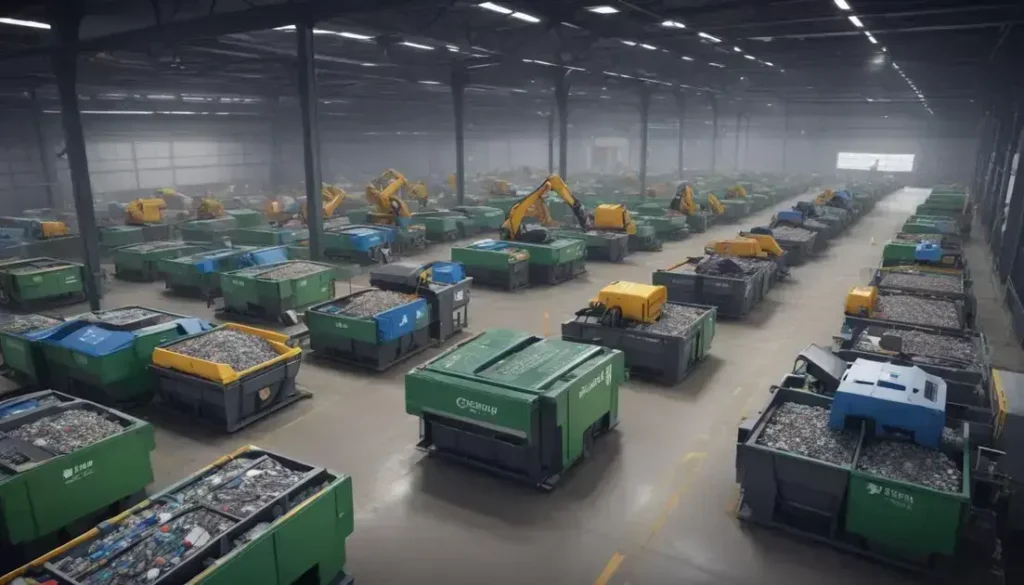Recycled polyester is a sustainable material derived from plastic waste that helps reduce environmental impact in the fashion industry by decreasing reliance on virgin resources and promoting a circular economy.
Circular Polyester is at the forefront of transforming the textile landscape. Explore how recent partnerships can drive sustainability in UK fashion.
Strategic partnerships shaping sustainable textiles
Strategic partnerships are essential in shaping the future of sustainable textiles. Collaborations between fashion brands, manufacturers, and recycling firms are leading to innovative approaches in the use of recycled materials. These alliances enable businesses to reduce their environmental footprint while meeting the growing consumer demand for eco-friendly products.
By pooling resources and expertise, companies can develop advanced technologies that enhance the durability and quality of recycled fabrics. Such innovations not only attract environmentally conscious consumers but also comply with increasing regulations on sustainability. Furthermore, these partnerships often foster a sense of community within the industry, driving collective action towards sustainability goals.
Investing in relationships with suppliers who focus on circular economy principles empowers brands to create a closed-loop system. This approach encourages the recycling of textiles into new products, ensuring minimal waste. As a result, businesses can gain a competitive edge in a market that prioritizes sustainability, showcasing their commitment to responsible practices.
Impact of recycled polyester on the fashion industry
The adoption of recycled polyester is significantly transforming the fashion industry, marking a shift towards more sustainable practices. This innovative material, derived from recycled plastic bottles, helps reduce reliance on virgin resources and decreases waste in landfills.
Brands are increasingly recognising the environmental benefits of using recycled polyester, leading to a surge in its popularity. This trend not only caters to the demand for eco-conscious products but also meets regulatory pressures surrounding sustainability. By integrating this material into their collections, companies can enhance their environmental credentials.
Moreover, the use of recycled polyester offers advantages beyond sustainability. It can often provide a similar quality and feel to traditional polyester, making it a viable alternative without compromising performance. Brands that embrace this shift can attract a growing demographic of environmentally aware consumers.
As the industry evolves, collaboration between stakeholders, including manufacturers and designers, will be crucial in improving the recycling processes and expanding the range of styles available in recycled materials. This collaborative ethos paves the way for a more circular economy within the fashion sector, where waste becomes a resource.
In conclusion, the future of fashion is bright with sustainability
The rise of recycled polyester is leading the fashion industry towards a more sustainable future. By using this innovative material, brands can reduce waste and lower their environmental impact.
As more companies join the movement, it is clear that choosing sustainability is not only good for the planet but also for business. Consumers are increasingly seeking out eco-friendly options, making recycled materials an attractive choice.
Partnerships and collaborations will play a key role in advancing this transformation. By working together, brands, manufacturers, and designers can create a more circular economy, where recycling becomes a fundamental aspect of fashion.
Ultimately, as the industry continues to evolve, embracing recycled polyester will help shape a greener future for fashion, benefiting both the environment and consumers alike.
Frequently Asked Questions
What is recycled polyester made from?
Recycled polyester is primarily made from recycled plastic bottles and other plastic waste, transforming used materials into new fabrics.
How does using recycled polyester benefit the environment?
Using recycled polyester reduces landfill waste, conserves natural resources, and lowers carbon emissions compared to producing virgin polyester.
Are garments made from recycled polyester of good quality?
Yes, garments made from recycled polyester can match the quality of those made from virgin polyester, offering similar durability and performance.
How can brands promote their use of recycled polyester?
Brands can highlight their commitment to sustainability in marketing materials, labelling, and through social media, appealing to eco-conscious consumers.
What steps can companies take to ensure their supply chains are sustainable?
Companies can partner with sustainable manufacturers, conduct audits, and focus on traceability to ensure that all materials used are responsibly sourced.
What impact does the fashion industry have on plastic waste?
The fashion industry contributes significantly to plastic waste through textile production and disposal, making the use of recycled materials essential for reducing its environmental impact.


